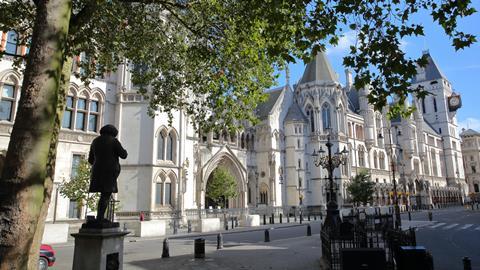A widow left ‘high and dry’ by the inactivity of her lawyers has won the right to pursue her case years past the limitation cut-off. In Shaw v Maguire (Re Preliminary Issues)¸ Master Cook said the claimant should not be penalised for her former solicitors’ mistakes.
The court heard that Karen Shaw’s husband Laurence had died in January 2014 of a metastatic melanoma aged 61 and she instructed south east firm Whitehead Monckton nine months later to bring a claim against his dermatologist and a private healthcare group.
A claim form was issued and amended in May 2017 to substitute the current defendant, a consultant pathologist who reviewed cell samples from the deceased in 2007.
Neither the claim form nor particulars of claim were ever served. When the defendant’s solicitors followed up the initial letter of claim in June 2017, they were informed that Whitehead Monckton was no longer instructed and it had closed her file.
Three years later, Karen Shaw brought a professional negligence claim against the firm, which denied liability. The firm then proposed indemnifying Shaw against the costs of pursuing the original claim out of time, which Shaw agreed. Proceedings were finally issued in August 2022. This was the first indication to the defendant for more than five years that a claim was being pursued. The defendant filed a defence denying liability and raising the issue of limitation, which came before Master Cook last month.
The master accepted that Shaw took ‘reasonable steps to instruct what she believed were competent solicitors’ who specialised in clinical negligence claims in 2014.
The court heard that Whitehead Monckton had closed its personal injury department in 2017 and transferred Shaw's file to another firm, which identified the pathologist as the only possible defendant but made no other progress. The file was then transferred back to Whitehead Monckton.
‘None of this was in any way the responsibility of the claimant who was left high and dry to eventually attempt some form of recourse with the legal ombudsman,’ the judge said. ‘Thereafter the claimant has reasonably followed the course suggested by her new solicitors.’
The master said the court had an unfettered discretion but acknowledged the impact on the defendant of having lived for five years thinking this matter was closed.
But Cook added: ‘In circumstances where I have found that the claimant has not contributed to the delay caused by her former solicitors I can see no reason to visit any of the faults of her lawyers on the claimant. Nor can I be satisfied that the claimant’s claim against her former solicitor would succeed.’



























